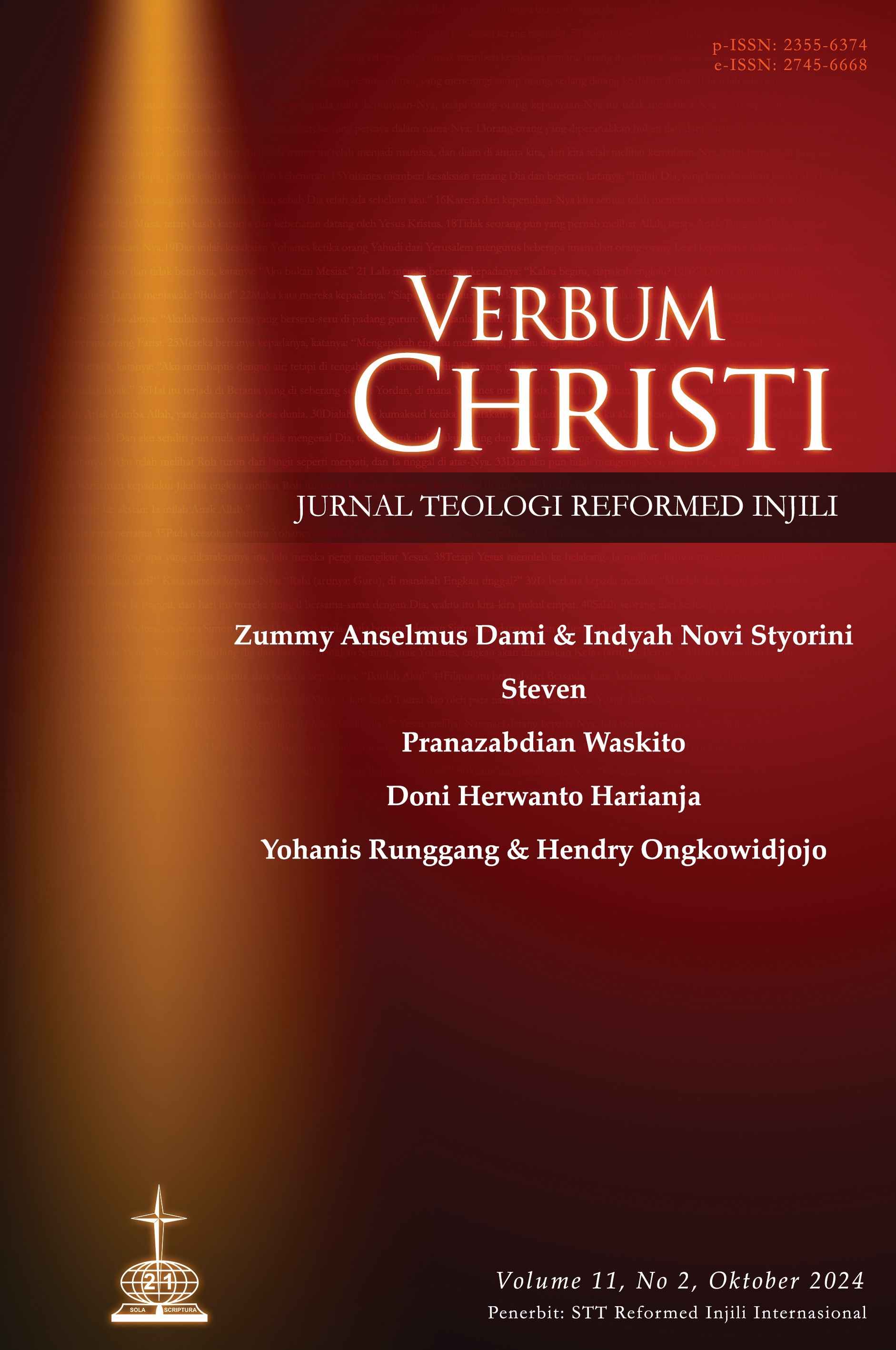Current Issues in Reformed Evangelical Theology
DOI:
https://doi.org/10.51688/VC11.2.2024.editorialAbstract
Reformed theology rightly is drawn not just from Scriptural statements but also “what may be truly and certainly proved” from them. But what is the status of proofs (or logical consequences) from Scripture? And how many “consequences” can we take beyond Scripture before they become speculative and are no longer “good” or “necessary”? Reformed and Evangelical theology needs to explore a clearer understanding and formulation of what precisely constitute “good and necessary consequences” of Scripture.
Downloads
References
Anizor, Uche, Robert B. Price, and Hank Voss. Doing Theology. London: Bloomsburry Publishing Plc, 2021.
Bebbington, David. Evangelicalism in Modern Britain: A History from the 1730s to the 1980s. London: Routledge, 2005.
Bingham, Matthew C, Chris Caughey, R. Scott Clark, and Crawford Gribben. On Being Reformed: Debates over a Theological Identity (Christianities in the Trans-Atlantic World). Cham: Palgrave Macmillan UK, 2018.
Butner, D. Glenn. The Son Who Learned Obedience: A Theological Case Against the Eternal Submission of the Son. Eugene: Pickwick Publications, 2018.
Frame, John. On Theology: Explorations and Controversies. Bellingham: Lexham Press, 2023.
Hart, Darryl G. Deconstructing Evangelicalism: Conservative Protestantism in the Age of Billy Graham. Presbyterian; Reformed: Baker Akademic, 2007.
Haykin, Michael A. G. (ed.) and Kenneth J. Stewart (ed.). The Emergence of Evangelicalism: Exploring Historical Continuities. Nottingham, England: Inter-Varsity Press, 2008.
MacCulloch, Diarmaid. Reformation: Europe’s House Divided, 1490-1700. London: Penguin, 2003.
Muller, Richard A. “John Calvin and Later Calvinism: The Identity of the Reformed Tradition.” In The Cambridge Companion to Reformation Theology, edited by David Bagchi and David C. Steinmetz, 130-49. Cambridge University Press, 2004.
―――. After Calvin: Studies in the Development of a Theological Tradition (Oxford Studies in Historical Theology). Oxford: Oxford University Press, 2003).
―――. Post-Reformation Reformed Dogmatics: Holy Scripture: The Cognitive Foundation of Theology. Grand Rapids: Baker Academic, 2003.
―――. Post-Reformation Reformed Dogmatics: Prolegomena to Theology. Grand Rapids: Baker Academic, 2003.
―――. Post-Reformation Reformed Dogmatics: The Divine Essence and Attributes. Grand Rapids: Baker Academic, 2003.
―――. Post-Reformation Reformed Dogmatics: The Triunity of God. Grand Rapids: Baker Academic, 2003.
―――. The Unacommodated Calvin: Studies in the Foundation of a Theological Tradition (Oxford Studies in Historical Theology). New York: Oxford University Press, 2001.
Wayne A. Grudem. Systematic Theology, Second Edition: An Introduction to Biblical Doctrine. Grand Rapids: Zondervan Academic, 2020.
Westminster Assembly, The Westminster Confession of Faith: With Proof Texts. (Horsham, Pa.: Great Commission Publications, 1992).
Yang, Hongyi. A Development Not a Departure: The Lacunae in the Debate of the Doctrine of the Trinity and Gender Roles. Phillipsburg: P&R Publishing, 2018.
Downloads
Published
How to Cite
Issue
Section
License
This article follows the terms of Creative Commons Attribution-NonCommercial 4.0 International License.
Copyright (c) 2024 Verbum Christi: Journal of Reformed Evangelical Theology. It is held by the journal with the author's consent.




